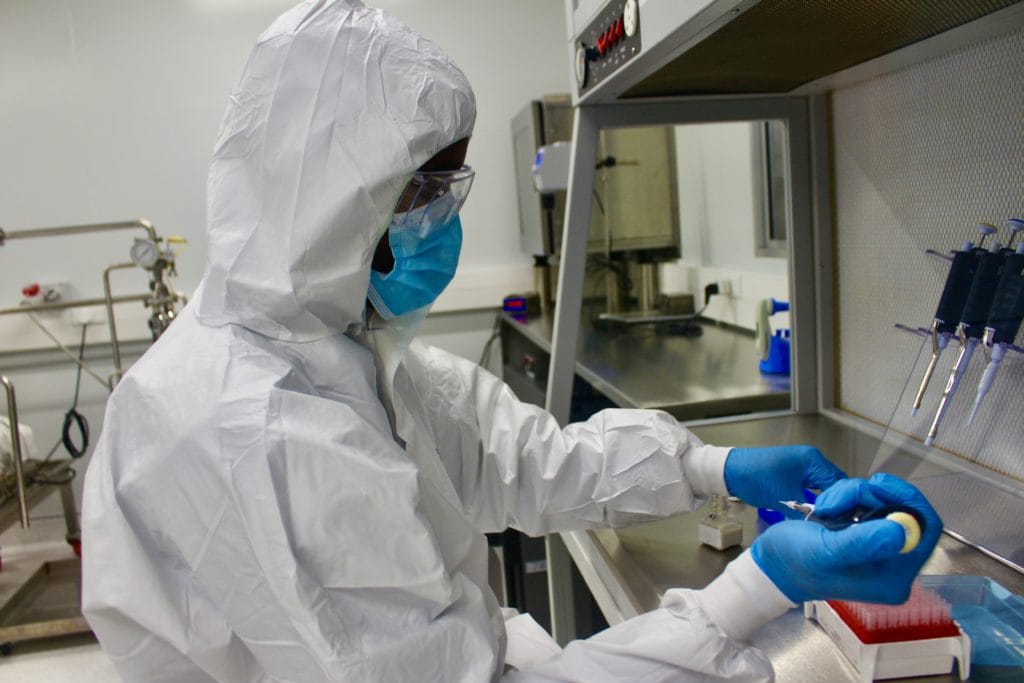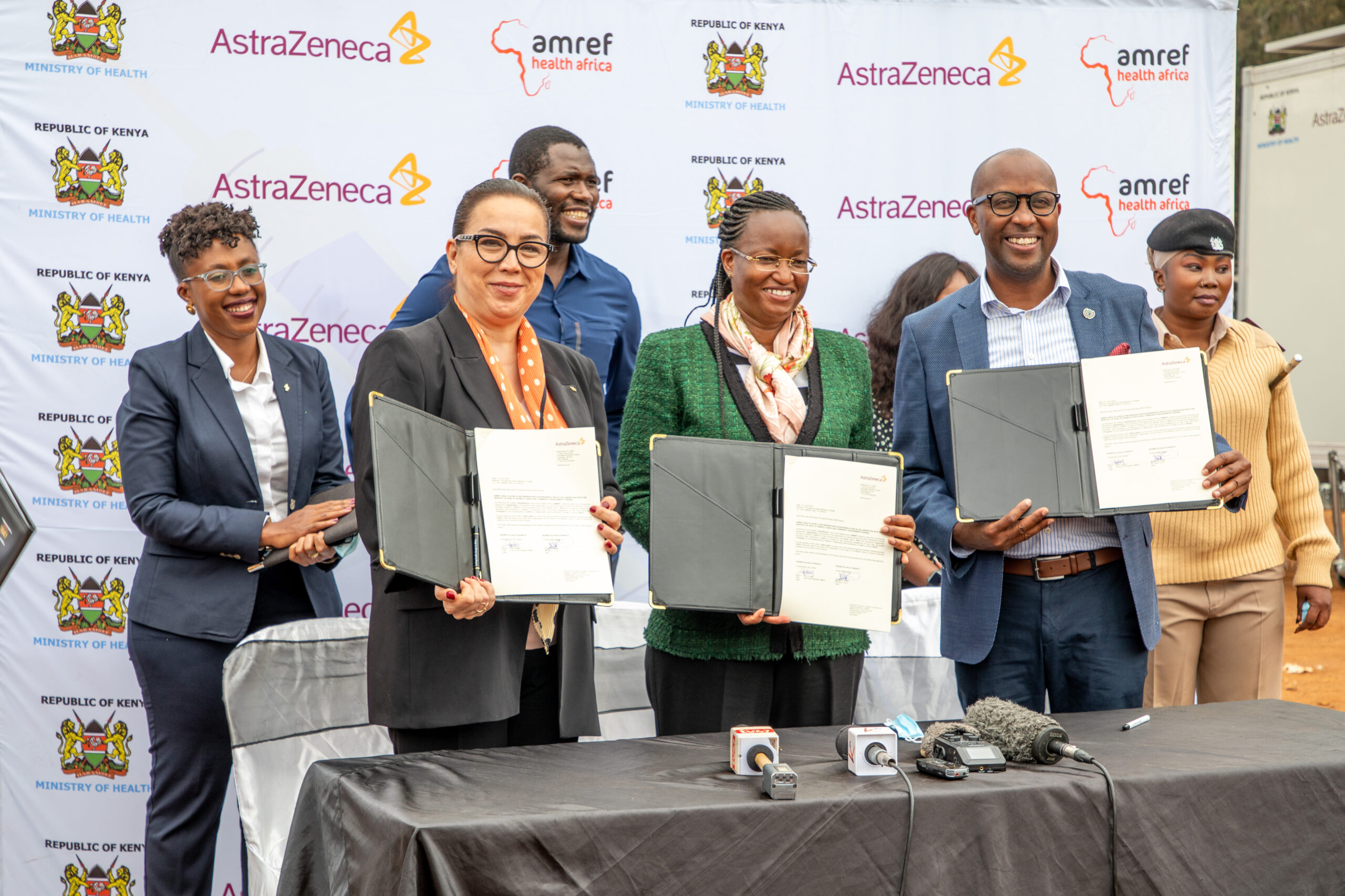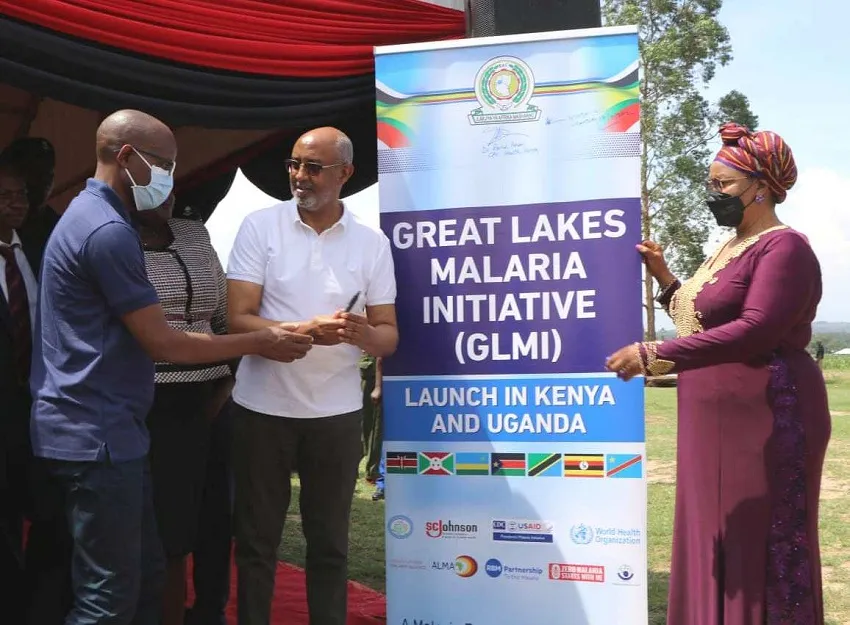Amref impacting the health of communities through Community Health Volunteers
Wednesday, 24 April, 2019

Kenya and most developing nations face a dire shortage of human resources for health, a situation that is worsened by the overwhelming demands of HIV/AIDS, tuberculosis and malaria. Community health volunteers (CHVs) play a role in creating demand for health care services, disease prevention, treatment and care.
Amref Health Africa in Kenya with funding from Global Fund is implementing a pilot project for integrating HIV, TB and malaria through Community Health System Strengthening (CSS) in Emuhaya sub-county. Emuhaya is one of five Sub Counties in Vihiga County with a population of about 110,997 (projection from 2009 census) covered by 6 Government and 8 Private Health Facilities.
Community systems strengthening is an approach that promotes the development of informed, capable and coordinated communities and community-based organisations, groups and structures. It involves a broad range of community actors and enables them to contribute to the long term sustainability of health and other interventions at the community level, including an enabling and responsive environment in which these contributions can be effective.
One objective of the CSS implementation approach is to empower the community members to own their health and find solutions to health related issues that affect them. We have had lessons learnt and success stories documented during the implementation period as narrated by the Sub County Nutritionist who is trained as a Trainer and supervisor in the CSS approach in Emuhaya.
Karen Onchwari’s role is to support clients and patients with various nutrition related issues. She is based at Ebusiratsi Health Centre. In her capacity, she has been able to offer counselling to patients on the importance of balanced diets. In cases where patients are referred to the facility and there is need for nutrition intervention, she prescribes various supplements for outpatient clients as well as nutrition therapy for in patient clients.
Special nutrition attention is given to HIV positive clients as well as TB patients since the antiretroviral drugs (ARVs) and anti-TB drugs they take require complementation of a balanced diet. She notes that Amref’s Global Fund Malaria project having trained Community Health Volunteers (CHVs) at the community level is a noble idea since they have played a key role in addressing health issues at the grassroots. “The CHVs have helped in identification, assessment, referral and management of clients in the community,” explains Karen.
In serious cases, patients are referred to link facilities for further intervention. She however notes that the link facility is not able to meet all the needs of patients’ in a single day as they receive numerous referrals from the community. This results in a heavy patient load for the facility. With inadequate hospital equipment, there is little they can do to meet the needs of every client. Another challenge is that the CHVs have not been well trained on the nutrition module hence their input is minimal as far as nutrition is concerned.
Albert’s Case
Albert’s case was brought to Karen’s attention in January 2017 during a community TB screening activity. They found him in a bad state. He had lived in Nairobi for a while, but when his health worsened and he could no longer go about his job efficiently, his wife brought him to his rural home. Albert was convinced that he had been bewitched and his state was in no way related to any health problem. Karen describes his state at the time as “very severe and in need of immediate attention.” They realised he had cardinal signs of TB as he was having fever, appeared wasted and could not move. He was taken to hospital and tested positive for TB. He weighed only 40 kilograms with a BMI of 13. He was given anti- TB drugs and allowed to go home. After a week, the health team visited him and to their dismay, Albert had stopped taking his drugs after only three days.
Albert was admitted at the hospital, put on a balanced diet and his drug intake keenly observed. He began responding to the treatment and after completing the six month treatment, he weighed 53 kilograms. Karen relates the poor feeding practices to the scarcity of land for adequate farming. Majority of the population barely has access to two meals a day meaning it is hard to achieve a balanced diet.
“I am grateful to Amref for being proactive and efficient in this project. Through community action days, as an activity supported by Amref through CSS approach, Albert was found ailing and bedridden in his house, referred to the hospital for treatment and put on supplementation and is now on the road to full recovery. Rose, the area CHV recruited by Amref with the support of the sub county health management team is closely monitoring Alberts treatment and reminds him to attend clinic follow ups. I hope Amref’s intervention lasts so as to help us impact to this community and raise their health r standards,” says Karen.







